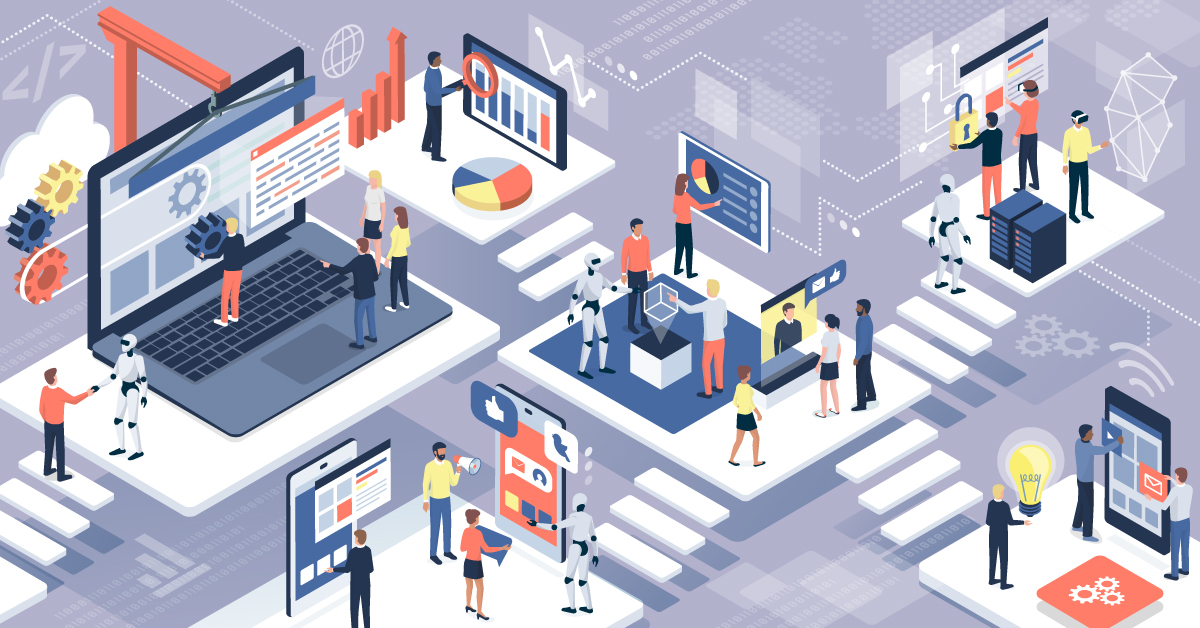The Future of Work
Dr CJ Meadows, Director of the Innovation & Insight Centre, SP Jain lends expertise on the workforce of tomorrow.

During the Industrial Transformation Asia Pacific 2018 held in Singapore on 16 Oct, Singapore’s Deputy Prime Minister (DPM) Tharman Shanmugaratnam has highlighted the exciting new world of innovation and inter-connected networks as well as challenges brought about by greater efficiencies of artificial intelligence, robots and machine learning.
“There is huge value to be created by collaborating with each other – between nations, between different industries and between public and private sectors,” Tharman told delegates at the event.
Job creation is a challenge while full scale efforts are underway for debunking a new myth – jobs disappearing or are being taken over by AI-powered robots.
To cope with fast-pace technological changes in managing businesses, the emphasis must be on how the employees and newcomers are positioned in the ever-evolving eco-system with leadership posts.
Markets and consumers are empowered by Artificial Intelligence, Augmented Intelligence, Machine Learning and every aspect of operations being based on Internet-of-Things.
Anticipation and expectations are beyond boundaries and everyone has settled down to a borderless trade environment. Arguably, there would be some remnants of traditional businesses trailing, but these would have to change sooner for the better.
Dr C J Meadows, Director of the Innovation & Insight Centre at S P Jain School of Global Management (SP Jain) advises: “Hire people who can raise your capabilities and make an impact with ‘edusulting’ – a term coined for “education and consultancy” which empower employees to lead on all fronts with best options.”
Supporting Dr Meadows’ views is James Fisher, Senior Vice President, Strategic Marketing at Qlik, a global software company from Pennsylvania.
“It is always a good idea to identify internal employees who are ardent advocates of certain subject matters and have them act as evangelists on behalf of the company so that they take on the role of being the internal expert that everyone looks up to,” Fisher emphasizes.
This would put an internal force in place and add confidence to employees as career development opportunities emerges, dismissing a recent but unconfirmed myth of disruptive technologies replacing human being at work place.
Fisher believes that longer-period internship certainly can happen and in the right places would be beneficial both for new employee and the employer.
“Having started my career as an intern, I see the benefit from learning skills that cannot easily be acquired while studying,” Fisher continues.
“Domain expertise is key in the Artificial Intelligence and analytics era, and my opportunity to learn as an intern set me off to an immediate advantage when I went back to my employer as full-time employee after graduation,” he points out.
According to Dr Meadows, there is positive job opportunities for employees with multiple skills including as in-house consultants.
In the interview, Fisher then goes on to give details of developments that are taking place amidst fast-pace technologies. The challenge is not so much about skills in AI and ML – as while these are important, they are relatively transferable technology skills that should be increasingly easy to acquire and grow.
“However, like Analytics and Business Intelligence, we need to remember that these technologies are only as smart as the available data and an understanding of the business process to which they are applied.
“As a result, not only do you need a comprehensive analytics strategy that combines a rich data strategy with the application of technology, you also need domain expertise and an understanding of the business process. The combination of AI and ML tech savvy skills, with that rich domain expertise is, therefore, likely to be much more challenging to acquire,” he concludes.
Click Here, to read more articles by Dr CJ Meadows, Director of the Innovation & Insight Centre, SP Jain Global..

